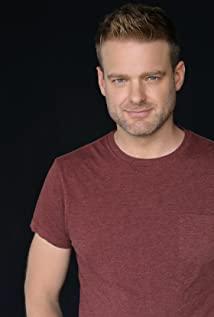I have watched a lot of American dramas, except for Black Mirror, which discusses the two points of body consciousness and the topic of consciousness storage and uploading to achieve immortality. This is the one that has a more in-depth setting discussion. Some discussion points include:
1. Questions about self
1) What is the self? Is it my consciousness? Or is it a combination of my consciousness and my body? Or my body?
There is a thought experiment called The Ship of Theseus, when every part of a ship is replaced; is it still the same ship?
If my body, brain, everything are changed again, am I still me? So what is it that determines that I am me?
If there is another consciousness of me, who is me? Two protagonists appear in the double-sleeve in the play, guessing the box to decide who lives and who dies, but when facing the other self, can you really be so calm instead of hoping "I" live and "you" die? After all, although they are all the same consciousness, but "I" is dead, there is no more "I", even if "you" is alive, "you" is not "I". It's like I have a twin sister, but we still understand that the twin sister and I are two different people. When how close is this twin sister to me, she becomes me? Or no matter how similar or even the same, she is still her, never me?
If I am my consciousness, then if the consciousness is tampered with, am I still me? For example, if Zhang San’s memory is transferred to me, will I become Zhang San? Isn't it that simple? Think about it carefully, if a person loses part of his memory after a car accident, is he not him anymore? Suppose someone’s grandmother has Alzheimer’s disease and forgets her past, should we say that she is no longer that person’s grandmother? For another example, we copied our grandmother at the moment she fell ill. Then, the grandmother who has completeness and consciousness, or the grandmother who has forgotten the past, which is more "grandmother"?
If a bad person pretends to be me, he knows all my files and memories, can my relatives tell that he is not me? Even if my relatives can’t tell, logically, is this bad person the same as me? You might say that he is pretending, so no matter how much he pretends, he is not me, but if the bad guy does not know that he is pretending, he thinks he is me, then he and I are the same person? How can I prove that I am me and he is not me?
2) What is consciousness? Is the sum of our life memories?
What is the bottom of consciousness? My experiences, experiences, preferences, feelings, books I have read, people I love? The sum of my memories?
Memory may be wrong. If the memory is wrong, is the consciousness also wrong? I am not me anymore? (Think of the above examples of illness or car accident) Normally I am still me, because anyone will remember wrong, but it can't be said that I remembered wrong, I am no longer myself, right? So if my consciousness is not only a memory, what else does it include?
2. Questions about death
1) What is the meaning of death?
The goddess who invented the stack believes that the absence of death will disrupt the balance, eternal life means eternal control for the rich, the gap between the rich and the poor will grow and exist forever, death is the only mechanism for balance, so there must be a rebellion. military.
Here, if we set up an equal society in advance, with unlimited resources, no gap between rich and poor, everyone can live happily forever (for example, living in a virtual world), in this case, is there no need to die? NS? If death is only a balancing mechanism, there is no need for death in an equal world.
So what is the meaning of death? If there is no death, is there still the concept of time? When 100 years, 10,000 years, and 100 million years are all the same concept, and there is always enough time to do anything, is there still time? There is no difference between 1 minute and 1 year, but the unit of measurement is different?
If there is no death, what does it mean to be alive? Just as black and white know that there is white because there is black, and the length is shorter because of the length. If there is no death, there will be no corresponding concept when living. So what is living? What is the meaning of being alive?
2) Is death necessary? Who decides to die?
Beauvoir wrote a novel "People Always Go To Die", trying to explore the problems caused by immortality. We assume that death defines life, and disappearance gives meaning to existence, that is, only loss can bring meaning to possession. Does it mean that death is necessary?
That is, is it necessary for existence to be meaningful? Is it necessary for people to live meaningfully? Or is it actually meaningless and it doesn't matter?
If meaningful and important, what kind of death is fair? Who should decide? In an equal society but in need of death, how to decide who will die (to give meaning to survival)? Is it a national institution? The government, the police? Or is it the free market and capital decisions in capitalism? Or is it decided by a random lottery? Of course, these methods all involve issues of legitimacy and fairness, as well as the issue of how to make joint decisions.
Or does everyone voluntarily decide to die? Can you decide how to die? For example, suicide is okay, but can I hire someone to murder myself (because, for example, I want to experience the pain and fear of being tortured)? Or I want to die peacefully, is euthanasia okay? If I am only 5 years old and healthy, but I want to die but not suicide, can I decide to be euthanized? Under what conditions allow a person to die voluntarily, and under what conditions allow people to die in a certain way?
3. Questions about freedom and rights, and justice
1) Do I have the freedom to choose whether or not to be resurrected and how to resurrect
For example, even if I am murdered, I don’t want to identify the killer alive, maybe because I don’t want the killer to be caught by the police (such as my lover). In this case, do I have the right (even if I am not religious) to choose Not be resurrected to identify the murderer?
Is my resurrection something I can choose? Can I choose not to be resurrected? (Just like DNR, no rescue agreement)
For another example, I am a man, and I am still a man when I am resurrected. Is this my right? What degree of rights can I have, and what kind of body should I be able to choose when I am resurrected? If a 7-year-old girl is resurrected into the body of a 70-year-old woman "inhumane", why is it inhumane? To what extent can the resurrection body be determined by other means such as wealth and power? For example, smart, strong, healthy, beautiful, slim... In a humane situation, which ones must be provided, which ones are provided with conditions, and which ones cannot be provided under any conditions (no matter how rich they are) ?
2) What kind of society is just?
Quell wants everyone to live for only 100 years. Is this fair? Don't people have the right to freely choose whether or not to die? Or is it that the fundamental problem has nothing to do with death, but just a problem of the social system?
Instead of letting everyone live for only 100 years, isn't it about creating a more fair, equal, and efficient society that can solve the problem more fundamentally?
So how to create a just society? What kind of society is just? (This is an old-fashioned question of moral philosophy, from utilitarianism to deontology, to morality to liberalism, to the veil of ignorance...there are countless discussions that can be carried out)
3) What rights and obligations do we have towards those around us, and towards our relatives? To what extent can individuals infringe others to guarantee their rights? Do we have the right to ask our relatives to love us and treat us well?
My sister designed to frame the people around her brother, just for her brother to be with herself. Is this method tenable? If we can't ask our brother to be nice to and be with her sister, can we ask our parents to be nice to and be with their children? Why is there such a difference?
View more about Altered Carbon reviews











